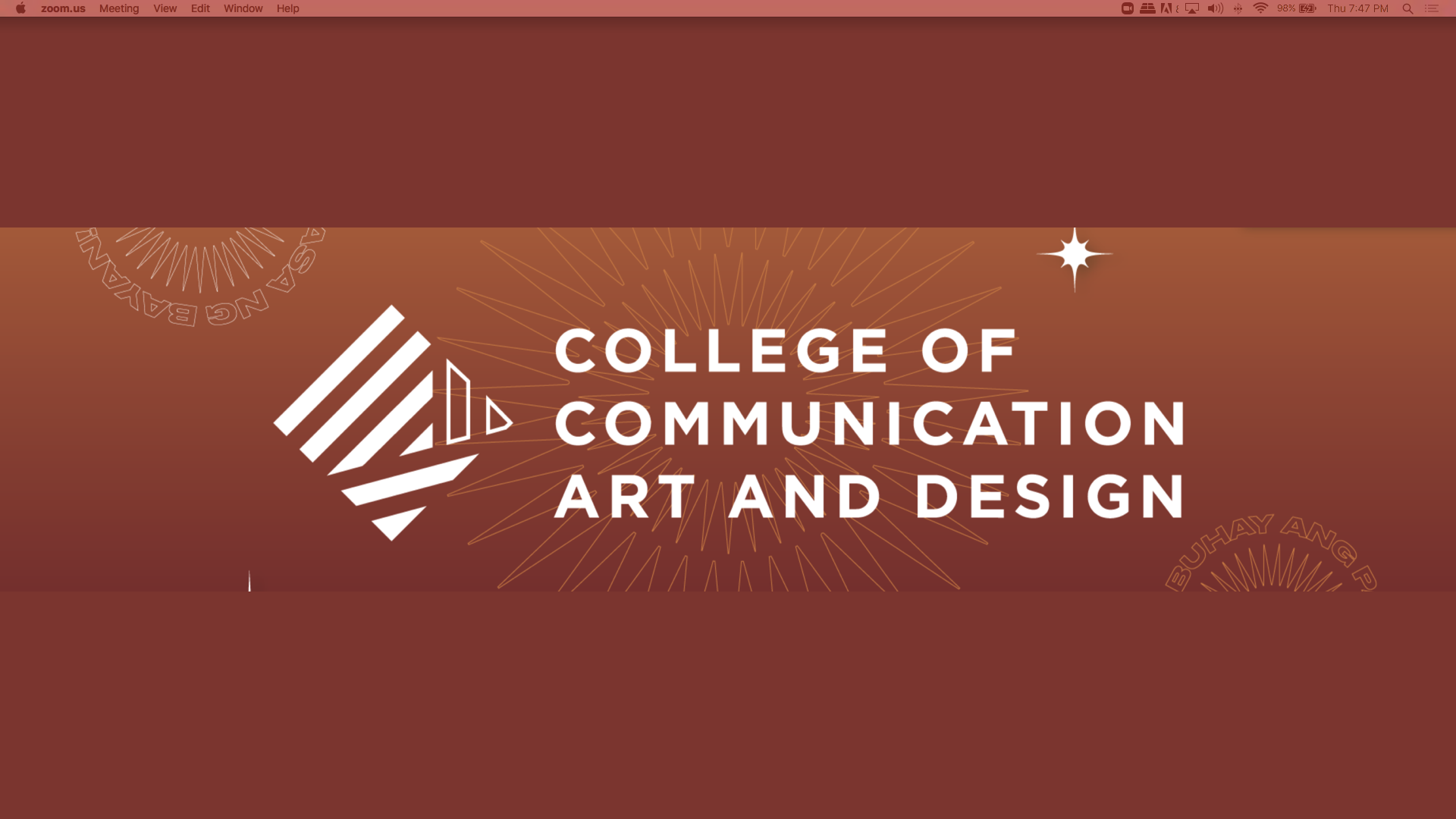
Research Design in Communication
Research Design Definition, Types, Thesis Proposal Writing, Background and Rationale, Research Questions, Statement of the Problem and Objectives, Review of Related Literature, Theoretical, Conceptual, and Operational Frameworks, Research Design and Methods, Research Position, Research Entry, Research Ethics, Concepts and Indicators/Variables and Measures, Data Gathering Procedure, Research Instruments, Data Analysis Methods, Scope and Limitations

Communication and Media Theories
Communication and Media Theories, Critical Perspectives on the Communication Theory Traditions, Development Discourse and Dev Comm Perspectives, Computer-mediated Communication Theories and Online Communities, core theories of political communication, strategic communication in dev comm and organizational communication, intercultural communication competence and new trends in intercultural communication theory, critical and cultural communication theories, critical media theories, cultural studies

Communication Theory

Writing for Different Media Section A
This course develops writing skills for diverse media platforms, including print, digital, and broadcast. It covers journalistic writing and strategic communication, focusing on accuracy, storytelling, and audience engagement.

Writing for Different Media Section B
This course develops writing skills for diverse media platforms, including print, digital, and broadcast. It covers journalistic writing and strategic communication, focusing on accuracy, storytelling, and audience engagement.

Communication Theory
This course introduces the students to communication theories in various communication contexts: interpersonal, group, organizational, media and new media, culture and society. This aims to equip students with ways in making sense of the social world as theories shape how people view reality. Overall, this course trains the students to think about and analyze a communication situation in a systematic and theoretical way.

Introduction to Communication
Course studies the relationship between communication, media, and culture and their effect on contemporary life and society. Course coverage includes the historical evolution of communication, current developments and issues, and media literacy skills.

Critical Perspectives in Communication copy 1
COMM 10: Critical Perspectives in Communication is a UP General Education (GE) course that explores how communication takes place in various levels of human interaction: interpersonal or group, mass or public, intercultural and workplace. It is in these spheres wherein you would be able to forge your individual and collective identities, and make sense of your interactions not only with others but also with institutions that impact on your thoughts, feelings, and actions. As you interact with individuals and institutions, you need to be armed with various lenses for you to have a more critical and meaningful engagement with issues and concerns of communication in local and global contexts.
This perspectives course engages you on a critical examination of communication issues in five interrelated areas: language, identity construction, representation, culture, and discourse. It is in these areas wherein the interdisciplinary nature of COMM 10 is evident. The course takes off from the arts and humanities, but certain concepts and tools of analysis are also drawn from the social science disciplines.
A GE program that loops in knowledge domains in the arts and humanities, social sciences and philosophy, mathematics and the sciences forms the bedrock of university education. A good GE program provides the base on which core courses in various curricula may spring from.
Hopefully, after finishing this course, you would have developed a clearer standpoint on vital issues through concepts and tools of analysis inspired by theories and frameworks learned in this class.

Research Design in Communication
Framework, Methods and Strategies in Communication Research

Comm 174 - Organizational Communication
This course looks into the meaning of an organization, the types of organization, the definition of organizational communication, the approaches and processes of organizational communication, organizational change and strategies in times of unexpected crisis, and the changing landscape of organizational communication.

Digital Storytelling
Learn the fundamentals, practical applications, societal relevance, and creative process of digital storytelling. Through COMM 154, students will have the opportunity to ethically create digital stories by effectively integrating multimedia elements and showcase them through a curated digital exhibit.

Broadcasting Principles and Practices
A lecture-workshop approach to tackle pressing issues of broadcast media in present-day, its relation to history, current affairs coupled with broadcast voice training.
